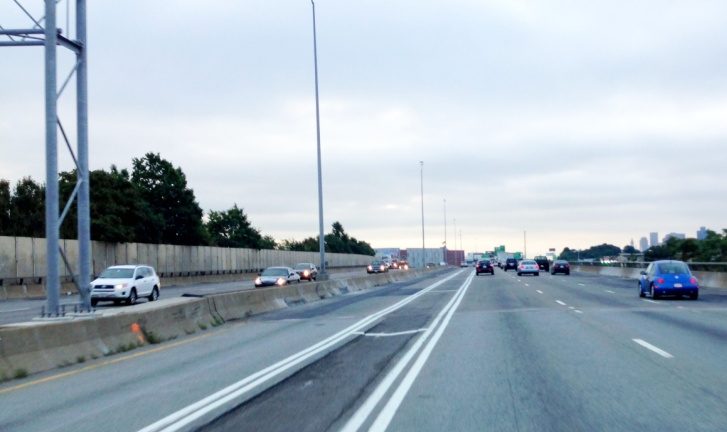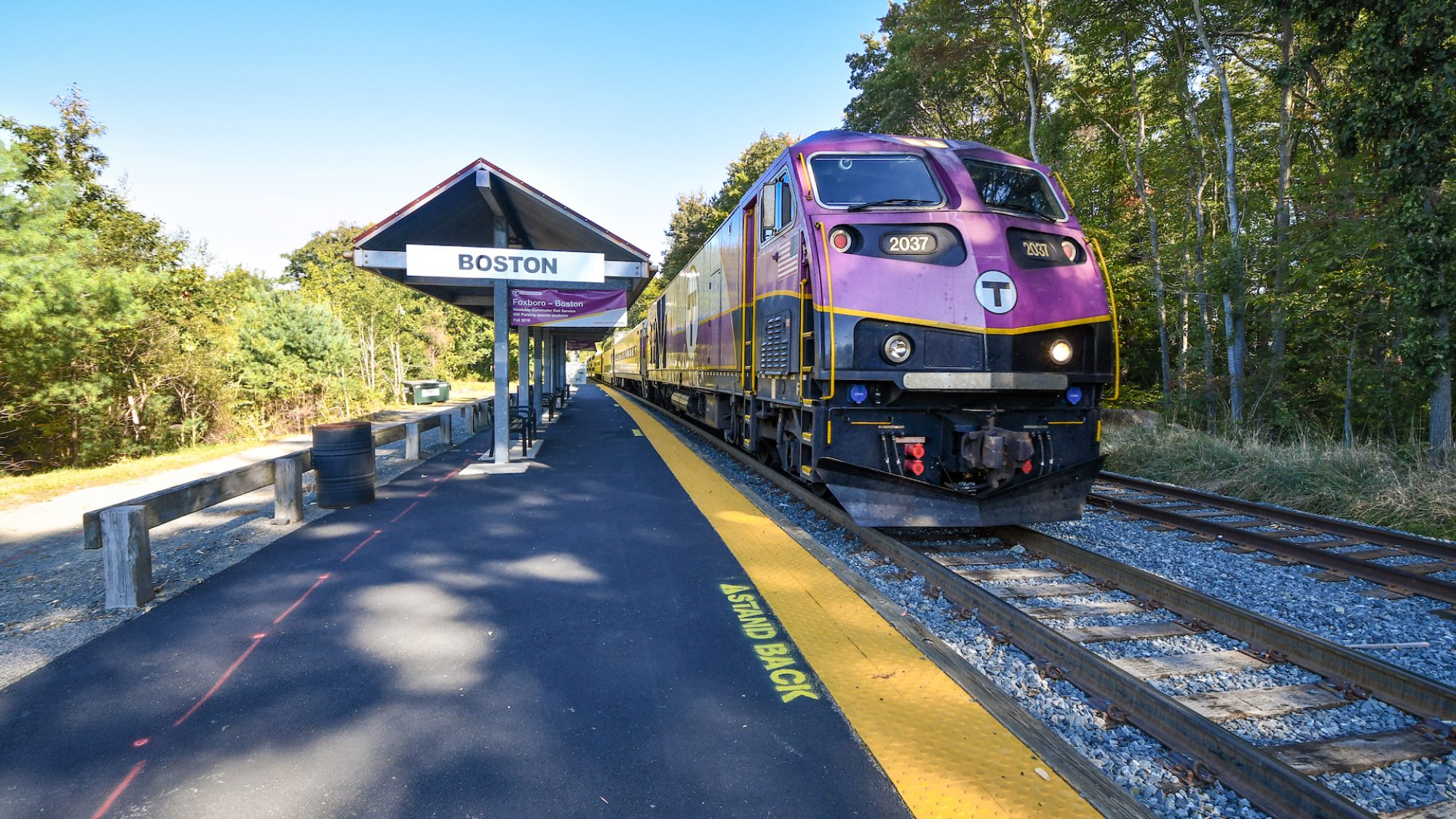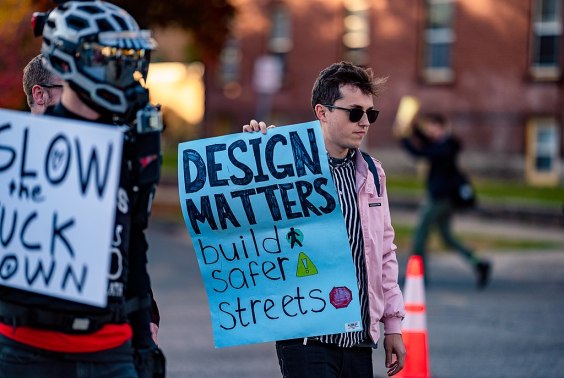The Conservation Law Foundation, a Boston-based environmental group, has filed its intent to sue MassDOT over its decision to let single-occupant vehicles into a transit and carpool lane on Interstate 93 north of Boston earlier this year.
"Since the early 1990s, the I-93 HOV (high-occupancy vehicle) southbound lane, which is a 2.6-mile lane from Medford to the Leonard P. Zakim Bunker Hill Bridge, has encouraged people to travel in buses and carpools to reduce air pollution and climate-damaging emissions," wrote the Conservation Law Foundation in a notice of intent to file suit sent on Tuesday.
MassDOT opened the HOV lane to all traffic on May 14, 2019, allegedly to make room for single-occupant vehicle drivers using I-93 to avoid a major ongoing construction project on Route 1 and the Tobin Bridge.
"This was done, according to MassDOT, because of the Tobin Bridge project, but it primarily benefits drivers from the north shore. There are lots of transit-dependent commuters from Chelsea and Everett who have even longer commutes that are being affected by this construction," said Conservation Law Foundation Senior Attorney Staci Rubin in a phone conversation Tuesday. "We’re interested in reinstating the HOV lane as soon as possible, but we’re also looking for a broader approach, and getting the state take a look at making connections to public transit and other options that make sense for more people."
The HOV lane was part of a suite of transit improvements – along with the construction of the Silver Line, and an unfulfilled promise to connect the Red and Blue Lines in downtown Boston – that the environmental group and the state had negotiated as mitigation for the "Big Dig" project in 1990.
Several public bus routes had made use of the HOV lane before MassDOT took it away this spring, including the MBTA's routes 325 and 326, which run from Haymarket station to Medford, and two commuter bus routes from the MVRTA, which provides rush-hour express services between downtown Boston, Lawrence, North Andover and Methuen.
The Conservation Law Foundation's notice included data from the MBTA showing that median run times on the 325 and 326 are 5 to 8 minutes slower per trip this summer.
I-93 is among the state's most congested roadways, and the state has not produced any evidence that opening up the carpool and transit lanes to less efficient modes of travel has actually created any benefit to other commuters, or merely created more traffic regionwide by making carpooling and bus riding less convenient.






